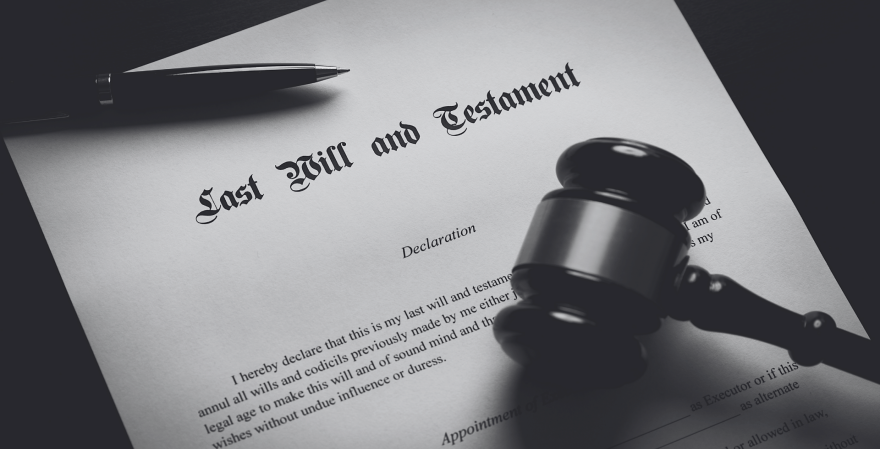Who is an Executor of a Will

Your Will or the Last Testament is an important document with regard to the interim management of your assets and their ultimate distribution after you have passed away. It is therefore in the interest of your loved ones that you not only execute a Will but also ensure that it is properly drafted/written with all the required ingredients which among others include the naming or appointing of an Executor. A correctly written Will is a document that will protect and/or take care of the interest of your loved ones and spare them of unwanted delay, costs and unexpected and unsavory acrimony within the family. It will aid in a smooth transition of the title and entitlement of your assets to loved ones as per your wishes.
An Executor is a person or may even be an institution who/which is the legal entity/representative named in a Will by the Testator to carry out the process of the distribution of the assets of the Testator.
So, the obvious question which one would tend to ask is: whether it necessary to have an Executor?
According to Section 2(c) of the Act, an executor is a person to whom the last Will of a deceased person is confided by the Testator for the execution of such last Will.
Hence, the presence of an Executor is Not an Essential requirement in a Will but will definitely ease the execution of the directions contained in a Will.
While it is not necessary under law, that an Executor must be appointed, a Probate can be granted by a court only to an Executor, as a Probate can only be applied for and granted to a person who has been appointed as an Executor under a Will by the Testator.
While the Indian Succession Act (which is the law that deals with the manner of distribution of the assets of a person after he dies) does not make it compulsory to appoint an Executor of a Will, it is however, one of the most important decisions of a Testator as his (Executors) presence clearly eases the process of distribution of the Testators assets.
Therefore, and for reasons that are stated here below, the appointment of a suitable and appropriate Executor is absolutely critical and the name and basic details of such a person should always be clearly mentioned in the text of the Will.
The duties of any Executor will vary depending on the terms of the Will.
- The Executor appointed in a Will is a legal representative of the deceased person and will act in accordance to the wishes of a Testator as mentioned in the will, after the testator’s death. He will ensure that correct interpretation of the contents and the manner of distribution.
- Basically, a general duty of the Executor is to understand the order in which a property of a Testator must be distributed and being chosen as an Executor and having accepted to act as one, it will become his honour as well as a responsibility to act with fortitude and fairness, depending on the complexity involved in administering the Will.
- One of the foremost reasons for the appointment of an Executor is that there are bound to be arguments or disputes or various interpretations which may affect the smooth distribution of the estates of the Testator. Due to this, the process of succession and consequent inheritance of the assets and settlement of debts and liabilities of the Testator will also be affected.
- It should be borne in mind that all the debts of a Testator will continuously attract the application of the burden of interest and this will adversely affect the ultimate residue of the assets value that is available for distribution. Thus, a quick settlement of all matters is desirable in every one’s interest. This can be facilitated only by an Executor.
To put it plainly, an Executor shares a trustable bond between and with the beneficiaries, in such a way that the confidence of executing a Will lies with the executor who will act with care and skill in administering the contents of a Will and therefore plays an important role in administering the estate of a deceased person.
Therefore, as mentioned earlier, the duties of any executor will vary depending on the terms and averments enshrined in a Will.
In the event of a person dying without a Will (ie, dying intestate), the court will appoint a person called the Administrator (akin to an Executor) of the estate of the deceased.
The other general duties of an Executor are:
- Carrying out the terms mentioned in the Will.
- Defending the Will and the interest of the beneficiaries when necessary.
- Applying for probate.
(to know more of the concept of a Probate, please read our blog on PROBATES)
An Executor takes care of three important goals before distributing the property of
the testator to the beneficiary.
a. Administering The Property
Once a Probate is received from the Court, the Executor must open a bank account in the name of the deceased’s estate and cause the remittance or deposits of all assets into it. Similarly, in the case where the assets are in the nature of securities / shares/ debentures and the like, an appropriate demat account will need to be opened with a depository participant into which all his securities shall be moved. This enables debts and liabilities including outstanding tax and administration cost that needs to be met/ paid be facilitated before handing over or distributing the residual of his assets to the beneficiaries.
b. Preserving The Property
Before distribution of property to the beneficiary, it is important that the executor protects and preserves the property in a way that safeguards its assets for appropriate distribution. This includes the manner of receipt of monthly accruals and annuities etc. One main way of preserving the property is to ensure that the estate is administered keeping in mind the time limit, usually within a period of six months. Where required, legal advice must be sought and obtained especially in situations where the property consists of valuable real property that need to be sold on the current market value.
c. Distributing The Property
The Executors role in administrating the Will and the assets ends by distributing it to the beneficiaries in accordance with the Will (or the Order of Administration). A distribution report/ document must be drafted by the Executor that the property has been distributed correctly and successfully to the beneficiaries including the debts of the Testator that were met/paid off prior to administration. Appropriate receipts and discharge shall be obtained by the Executor from each of the beneficiaries.
d. Other duties of an Executor
Executors carry a major burden when someone dies. Not only are they required to manage the estate of the Testator, but must also plan the funeral arrangements and keep a tab on the costs (in the absence of the relatives, though the relatives mainly take care of such matters), inform the bankers and submit copies of the death certificate to various authorities, seek and cause the cancelation of the credit cards and collect and take into his custody all the credit cards as well as all the bank ATM cards, gather important and relevant documentation including the bank account statements, and hire lawyers and financial planners who can help them crawl out of the administrative groove.
What happens to a Will in which an Executor is not named?
It is here that the presence and role of an Administrator comes in.
In such an eventuality, the legal heirs shall have to approach the court through a lawyer for the appointment of an Administrator.
An Administrator is one who is responsible for dealing with an estate under certain circumstances, like when there is no Will or there is no Executor named in the Will or the named Executors are not willing to act as such or are incapable of acting as the Executors. An Administrator so appointed by the court has to apply for and obtain from the court “letters of administration” before he/they can deal with an estate of the deceased person.
Can executors be beneficiaries?
The answer is “yes”, an executor can be a beneficiary of a Will.
It is quite normal for a Testator to name one of his legal heirs (who may also be one of the beneficiaries) as an executor of his Will. No issues here.
The only persons who cannot be Executors or beneficiaries under a Will are those who witnessed the execution of a Will when the Testator had signed it.
Therefore, an Executor of a Will can be a beneficiary, and in reality, as in a majority of cases, the main beneficiary of the estate is often one of the Executors. As a result, it is both perfectly legal and commonplace to name the same person as an Executor and a beneficiary in a Will. The only issues that may arise is in the event of a dispute as to the interpretation concerning certain assets and their distribution where the said Executor cum beneficiary is a beneficial party. Hence, it is always advisable that a neutral and non-beneficiary and one who is respected by the beneficiaries be appointed as an Executor.
Joseph Hadrian Bosco
*As compiled from various sources on the internet





